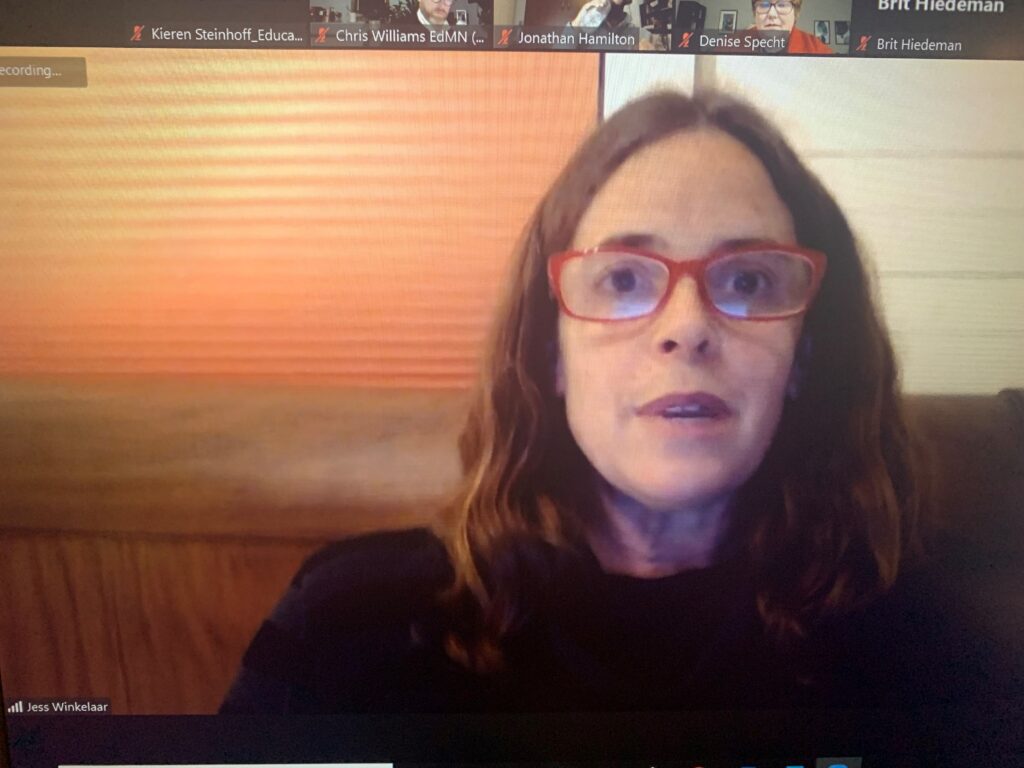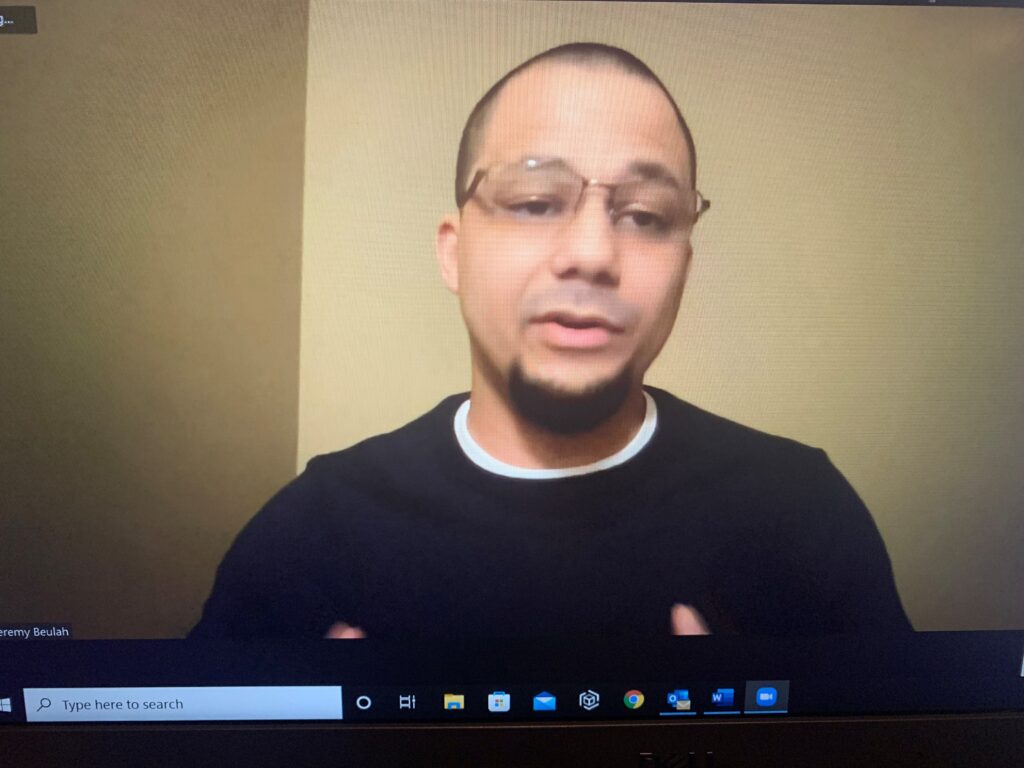Education Minnesota hosted a town hall for its members on the new social studies standards and Ethnic Studies strand in February.
The process for updating content area standards in Minnesota schools takes place every 10 years. The social studies standards review began in the fall of 2020 and are set to be implemented in the 2026-27 school year, and while standards updates are normally routine, this update has gained a lot of attention.
“There has been a tremendous amount of disinformation about these standards,” said Education Minnesota President Denise Specht at the town hall. “Most of them from big money groups who object to the broader, more honest history contained in them.”
Featured speakers at the forum were members of the Minnesota Ethnic Studies Coalition, members of the standards writing committee and an educator with experience teaching Ethnic Studies.
The standards writing committee was composed of educators, parents, community members, professors from across the state.
“As a union, we believe one of the most important reasons for public education to exist is because it prepares its students to be citizens in a society they will someday lead,” said Specht. “I don’t believe we can do that job without giving students the facts and the tools they need to think critically about the role of race and racism in our nation. Without that kind of education and those habits in mind, we are dooming our state and country to make the mistakes of our past again and again. We need to do better.”

Dr. Jessica Winkelaar, a social studies teacher in Mounds View, is on the standards review committee and says the work done in updating the standards is necessary.
“I support the new standards, including the Ethnic Studies strand,” Winkelaar said. “They are inclusive, honest and necessary for all of our students in Minnesota. We focused on what were the most important skills and content. We didn’t think about cutting anything. We focused on what all our students in Minnesota need to think about at this time in our state and how we could scaffold those K-12.”
Brian Lozenski, an associate professor of urban and multicultural education at Macalester College, spoke at the town hall about what Ethnic Studies are and the history of the content area.
“Ethnic Studies emerged as a set of disciplines that traditionally in the United States has been represented by Black studies or Africana studies, Latinx studies and Chicana studies, Asian and Asian-American studies, Native American and Indigenous studies and more recently and increasingly Middle Eastern and Islamic studies,” he said. “Typically what had been based in community studies began to be formalized the post-Civil Rights era of the 1960s. They have been in existence informally for well over 60 years.”
Lozenski said that moves to bring Ethnic Studies into the curriculum is happening nationwide and its being met with controversy elsewhere, as it has been here.
“Ethnic Studies doesn’t ask us to ban anything,” he said. “Ethnic Studies asks us to expand our knowledge systems and have our students understand how knowledge is constructed.”
Jonathan Hamilton, a visiting professor at Macalester is a member of the standards review and one of the leads of the Ethnic Studies writing group, spoke to the process.
“The members of the committee called for the strand to added to the existing four strands of history, geography, economics and citizenship/government,” he said. “We are calling for the additional strand, and for Ethnic Studies to be embedded in the existing strands. We wanted to approach the standards process in an equitable way where all Minnesotans were represented. There were a lot of conversations around alignment within the five strands to make sure they all work with each other.”
The Ethnic Studies strand is comprised of three standards which invites students to explore how identity shapes individual and collective experiences.
Hamilton explained there are three major themes in the Ethnic Studies strand – identity, which is how individual experiences are shaped; ways of knowing, how different cultures understand knowledge; and resistance, to learn about the historical struggles for justice, freedom and liberation and how they continue to shape the history of our state and nation.
Jeremy Beulah, a middle school teacher in Minneapolis, also spoke at the forum about how students are responding to learning about Ethnic Studies as he is currently teaching it.

“As educators, we want our students to grow through education, conversation and socialization,” he said. “These are the things that go into Ethnic Studies. Students see themselves differently and see the things around them critically.”
Beulah said his middle school students are ready to have conversations about different perspectives and identities within themselves and others.
“These are things that students already see in the world around them and on social media,” he said. “Why not provide them that knowledge so they are able to navigate it for their identities to be seen and for change to be made for everyone?”


